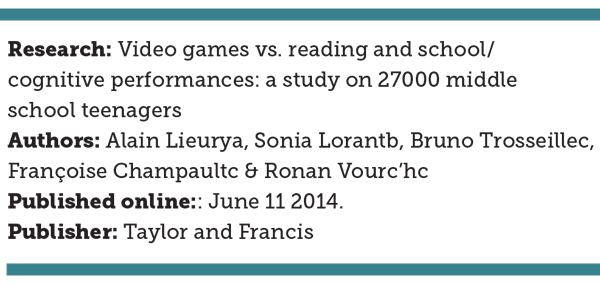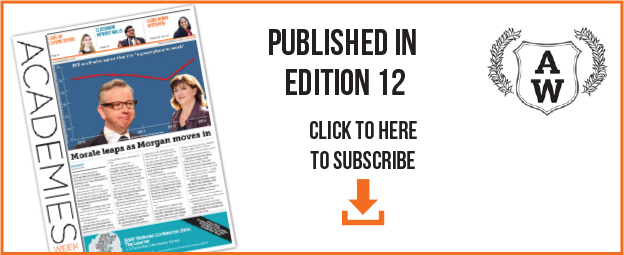
Video games are everywhere: your phone, TV and even in school. They are constantly in the news and as normal to our pupils as TV is to you. As a lifelong videogame enthusiast and a primary headteacher, research that examines the impact of games on learning is welcome. This research is part of a survey examining the leisure activities of 27,000 French teenagers and comparing them to the results of various “school/cognitive” type tests.
This research is a straightforward, if broad, survey.
It asks how often the students completed leisure activities, and goes so far as to examine the genre of books and video games they consume, then cross references their activities with test results. The authors are interested in two main theories: “cost on time” (displacement), where the time lost doing homework impacts negatively on academic results. Plus, “transfer of cognitive skills”, w.g. whether the leisure activity can actually support the learning of skills that aid better academic results.
The study reviews current literature and paints a confused, fragmented but familiar picture. There is some research in this area, but little is useful to educationists. They point to research suggesting that “action” video gamers do better in selective attention and visual discrimination tests, and that video gamers are better in dual task but not single-task situations. The context is so specific, however, that it is difficult to consider school applications.
The “cost on time” theory proves interesting. An increase in leisure activities, the survey suggests, presents no negative correlation with academic ability. Interestingly, “resting/relaxation/day-dream” as a choice for leisure activity showed a slightly positive correlation to the school tests – an argument for decreasing the overload of activities?
As for video games as a leisure activity, the survey showed little correlation, either positive or negative, with academic ability. One small correlation was negative; players of sports-related games have a negative correlation with their test scores. For strategic games players there is a small positive correlation for maths and reasoning activities. However, the effect of game training needs to be questioned. The authors point to studies that liken the neurological training connected to violin playing and how this impacts no other section of the brain. These correlations may therefore not be related to the video games but something else.
Reading as a leisure activity (all genres) has a small positive correlation with tasks such as encyclopaedic memory tests and comprehension. These correlations are higher for girls who read crime/thriller/fantasy books.
There are, however, several dangers to drawing conclusions from such a study. It makes no allowances for the length of time spent on an activity — and whilst it tries to give the books and games a genre, the distinctions lack nuance.
So, is this research any use?
It leaves a lot of questions unanswered. Is it about the frequency of the activity, or the length of time doing it? Can schools tap into these leisure activities to improve children’s test results? Should all children read a crime novel?
Of more interest is the window on to the leisure activities of teenagers. Of the 27,000 who took part, 88 per cent said they used the internet to communicate with friends every day compared with 44 per cent for playing video games. That’s a staggering amount – and the survey was done in 2011, so it is likely to be even higher now. The survey also supports stereotypes – more boys than girls play games, and boys are much more likely to use fighting and platform games. Can schools tap into this knowledge in a practical way?
Still, it is an interesting survey and one that should be repeated, like the census, so we can track what future generations are actually doing. And maybe that information really will be something schools can use!













Your thoughts